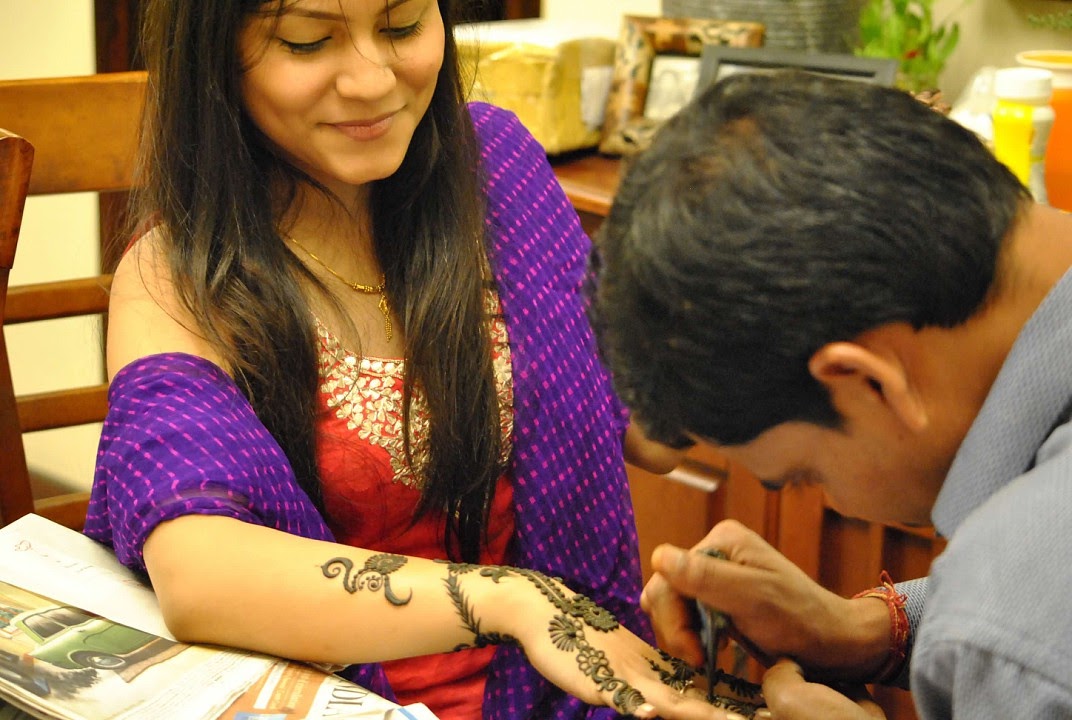
How Mehndi Helped Me Embrace My South Asian Roots During the Pandemic
I have a love-hate relationship with Mehndi – a temporary skin decoration applied using henna that originated in ancient India. Henna is associated with positive spirits and good luck in my culture. Many people claim that Mehndi is the way to make the sacred visible to the naked eye, thus offering and receiving blessings from the divine through the practice. However, for non-South Asians, it is just a sort of temporary tattoo without any significance. And so the line between appreciation and cultural appropriation becomes blurry; white people grab permission to take something from our culture just for the perfect Insta photo, or for their profit, without addressing their colonial and imperial pasts. As long as it’s aesthetically pleasing and can be called a “form of art,” it seems like the origin or the roots don’t matter at all.
I came to London in 2018 for a media fellowship and have been based here on and off for the past three years. My British friends have always looked at Mehndi with a colonial lens — to them, it was either exotic or disgusting (since it takes hours to dry before one can wash it off.)
Strolling through different markets in London, one can spot various shops where South Asians gather right before the festive season or a marriage ceremony (to wish the bride good luck) to have Mehndi applied on their hands, like Priyanka Chopra and her friends. Some people have an entire Mehndi ceremony as a pre-wedding party where women enjoy cocktails while henna is applied on their arms.
I once dated a British guy who confused Mehndi with another Pakistani tradition that involved a big pre-wedding party. Even though I was annoyed and a bit embarrassed by how awkward that conversation was, it occurred to me that I can’t blame him for assuming that all South Asian weddings are just a series of back-to-back parties. After all, that concept has been pushed forward relentlessly by media and pop culture in the last decade – a great example of this is the Netflix show “Indian Matchmaking. Packaged for a Western audience and their entertainment, this popular framing leaves aside any room to question the stereotypes on display, or view all of what’s happening through a historical colonial lens.
In 2020, I went to New Delhi to visit my parents. I didn’t expect to be stuck with them for most of the year thanks to international travel restrictions. I arrived fresh from a post-Brexit Britain where distance from my cultural identity made me feel more comfortable. In London, during parties, I have been asked numerous times where I’m from, and I have seen the shock on the faces of people when I tell them I’m Indian. They say I am not dark enough, or my accent is not cringe-worthy enough to be an Indian. They ask me if maybe my ancestors are European. They also gush about Indian weddings and the tattoos – read: Mehndi – that people wear during weddings or the festive seasons. I try to explain that they aren’t mere tattoos. But I realize halfway through the conversation that they don’t care. To them, it’s all just entertainment and fun.
So I started hating this tradition. In doing so, I ran from myself, more worried about whether my authentic self was acceptable. I would make faces and moan about how annoying the process of applying and removing Mehndi is – just like my British friends do now – while also secretly loving how beautiful and elegant my hands looked. Clearly, Britain’s 200-year rule in India and the impact of colonialism still had a huge role to play with how I saw things.
Now, post-pandemic (I haven’t attended a single wedding in the last two years), and reinvigorated after my time in India, I not only miss the tradition of sitting with my girlfriends while each of us chose Mehndi designs, but I also long for the feeling of a community that I was so focused on rejecting. While I was busy trying to break the stereotypes of what an Indian girl is supposed to be – by embracing the western culture and imitating it – I missed how the world was fascinated by everything Indian (yoga, chai, Mehndi…the list goes on).
Every now and then I still cringe when a white person or a fashion brand tries to remarket my cultural tradition without engaging with its roots or the people behind it. You can’t cherry-pick parts that suit your agenda and discard the rest. But in the end, I find myself more forgiving than I might have been two years ago: Everyone is still learning, I don’t think cancel culture helps anyone, and mainly because, for the longest time, I repackaged myself and discarded the parts of me that weren’t suitable for a western audience – like my British friends and colleagues – rather than being my unapologetic self in my brown skin.
So, now, while I work to unlearn years of toxic, unrealistic standards of beauty and living, I can only hope that more people educate themselves about their actions and question their past, especially as it connects to colonial oppression and post-colonial consumption. Every person has a relationship with colonialism, and it’s high time we all address it on an individual level.
I’m back in London now. My housemate showed me her hands a few weeks ago with beautiful intricate Mehndi on them, right before Eid. I asked her if she could take me with her next time she plans to get henna, so I could too.
Meehika Barua is a freelance journalist writing for Vogue US, The Guardian, British Vogue, VICE, Glamour, The Washington Post, Insider, Al Jazeera, The Independent, Oprah magazine, among other publications. She covers culture, lifestyle and social issues, sometimes through the occasional lens of tech and human rights. Follow her on Twitter: @meehikabarua.
